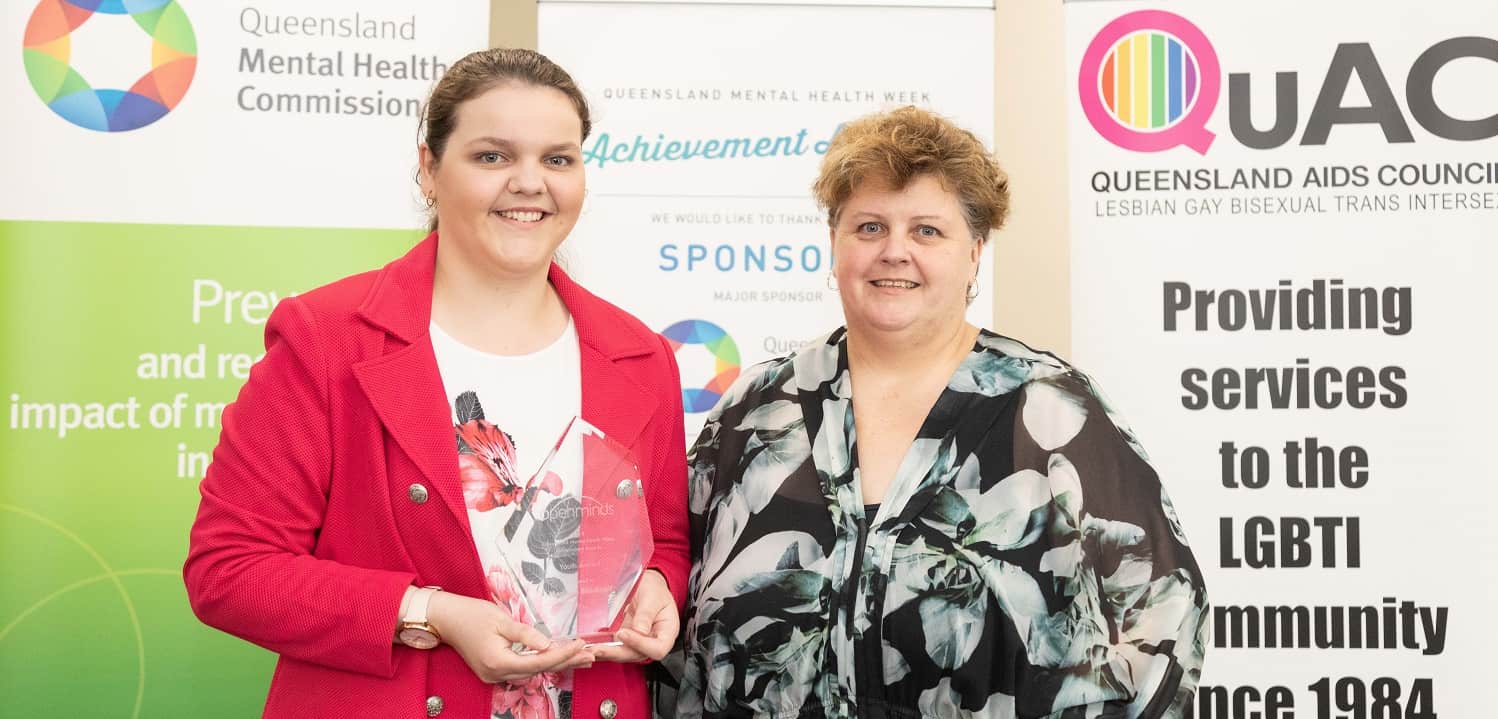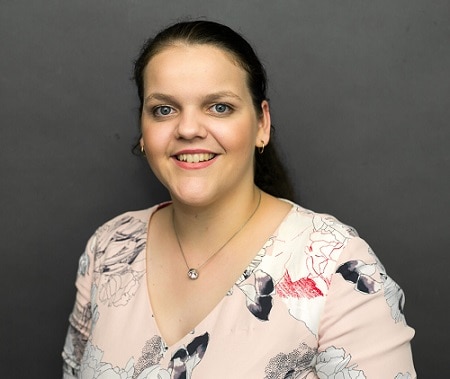Young and passionate
about mental health
We spoke to Madison Birtchnell, a mental health community champion and winner of the Youth Award at the 2018 Queensland Mental Health Week Achievement Awards. Madison shares what new initiatives she’s seen recently in the mental health space that have impressed her, and speaks about how her passion for youth mental health first began.

Introducing Madison
Madison, aged 19 and from the Gold Coast, is a proud winner of the Youth Award category in the 2018 Queensland Mental Health Week Achievement Awards, and is a Mental Health Community Champion.
She is passionate about social justice, youth engagement, equality, mental health, and empowering women.
Madison is a keynote speaker and has presented at TEDx QUT, the National Council of Women of Queensland and Supanova Gold Coast. She also represented Australia in the 2019 Women Deliver Young Leader’s Conference in Canada.
She is a recognised event organiser delivering an empowering International Women’s Week event and an exceptional youth mental health event.
Madison passionately believes there is a social need and responsibility for each of us to volunteer, to invest in our community and to become part of the larger, overall change.

Why is mental health so important to you?
Good mental health and well-being is so important to me because it is the foundation which allows us to be the best person that we can be. It assists us to function within our communities and be a productive individual.
When I was in high school, I discovered that young people were at greater risk of mental health issues, with 26% of young people aged between 16-24 having a mental disorder (according to a study by Weier). Additionally, more than 80 per cent of males and nearly 70 per cent of females with these conditions do not use any services or get the professional help they need. With these confronting statistics in mind, I felt I needed to do something to support these individuals. These statistics also meant that of my student body, 125 students could suffer from a mental health disorder.
I also learnt that if young people get the help that they need early in their life, then the severity and duration of the illness can be reduced. This sparked my interest in mental health to raise awareness about the number of young people who can be impacted and increase support. I therefore devised a mental health event that promoted the importance of mental health and aimed to inspire students to be their best selves – mentally, physically and socially.
My primary objective in undertaking mental health advocacy is to raise awareness, create action, educate the community and decrease the stigma sadly still often associated with mental illness.
This was the start of my journey in mental health and I am currently devising a mental health event to be held at my university (QUT) later this year to support the students and wider community.
Have you seen any new mental health initiatives that you’ve been impressed by? If so, what are they and why have they impressed you?
I have been very encouraged by the Federal Government’s renewed, ongoing investment in increasing funding for support services.
To be creating such a positive, public conversation around mental health is very impressive and I was particularly impressed that the government is able to recognise that greater funding and the provision of more resources ensures that support lands as close to people living with illness and provides them with the specific support they need, when they need it.
An organisation that I particularly admire is the Country Women’s Association. The Country Women’s Association (CWA) exemplifies the value of social connection, creating supportive communities and voicing both the value and challenges associated with country living.
They have partnered with RAMHP to implement training for CWA members in rural NSW to enable them to be informed when speaking out about mental health issues, supporting their friends/family and wider community.
What particularly impressed me about this initiative was their efforts to introduce professional counselling services at their hubs, so that when community members, particularly men, visit their hubs they are able to enjoy a coffee and scone and have the resources available to access support in a safe, familiar and confidential environment.
Why are you so passionate about reducing mental health stigma?
In reducing the stigma associated with, and changing the way, mental health is viewed and discussed, it will continue to have a positive effect on the individuals themselves, their friends and family along with the wider community, enabling them to seek assistance when needed.
Mental health conditions are like any other illness, in that we need to focus on the importance of encouraging individuals to seek help and give them access to the resources and assistance they need. Part of my passion for reducing mental health stigma also comes from the understanding that more young people are feeling isolated and anxious due to a rising reliance on technologies and social media.
By reducing the stigma associated with mental health, we will encourage and support individuals and their families/friends to reach out and seek the treatment, help, support and assistance they need, in a safe and supportive environment.
The events that I undertake seek to deliver tools and resources for community members that will allow them to discover their full potential, as well as learning coping methods to deal with anxiety, depression and stress. Through these events and programs, conversations are able to be stimulated around mental health at university, home and in the community. Through education and raising awareness of mental health as a medical condition, we are assisting to create positive change in both individuals and our communities.
Why do you think we all need to look after our mental health?
I think it is very important for all of us to strive for good mental health and well-being. Perhaps, in this time of an ever-increasing busy world with numerous demands for our attention and time, it is even more important to look after our mental health. As such, the Queensland Mental Health week’s theme this year is very fitting and aptly titled #TakeTime – for mental health.
Good mental health and well-being can be as simple as valuing, respecting and including another person, and also showing another individual kindness and understanding. It is important at all times to treat all people with respect and value each person as an individual – which will all enhance an individual’s quality of life and their well-being.
Positive mental health and well-being, feeling safe, being empowered and connected to other people in our communities, strengthening diversity, and supporting individuals so they can realise their potential, are fundamental elements to making the community a positive environment for all people to live within.
What did winning a QLD Mental Health Week Award last year mean for you?
Winning the Queensland Mental Health Week Youth Award last year was incredibly exciting and empowered me to utilise this new platform to promote the importance of mental health in each individual, particularly young people.
What made this an incredibly special recognition was knowing that the work I am doing is making a difference and hopefully inspiring more people to speak out about their struggles and most importantly support others to seek assistance.
It is also an acknowledgment that my efforts to reduce stigma and raise awareness around mental health is appreciated and valued. The reason I volunteer and undertake the work that I do is because I am passionate about helping people and making a positive difference.
The knowledge that through our actions, as individuals or communities, we are able to change one person’s life who may be suffering from mental health is incredibly motivating and I hope that together we can create a culture of acceptance, support and unification.
